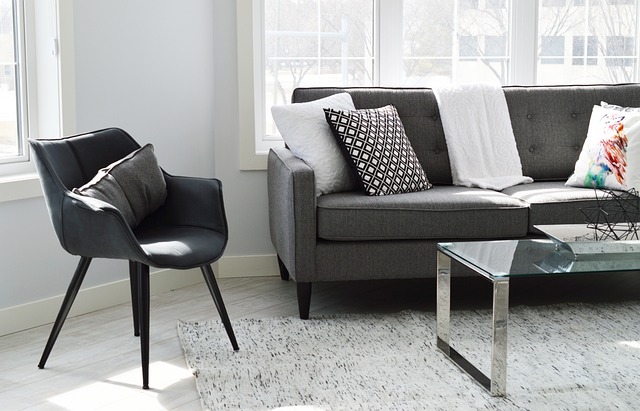Supportive Footwear: Medical-Grade Support for Foot Health
Discover how orthopedic walking shoes can support your daily steps with comfort and stability. Designed to provide gentle cushioning and reliable support, these shoes help make walking a more comfortable part of your routine while keeping your feet cared for every day.

Foot health plays a crucial role in overall quality of life, yet many people overlook the importance of proper footwear until pain becomes unbearable. Supportive medical footwear represents a specialized category designed to address various foot conditions, provide enhanced support, and promote proper foot alignment. These shoes go beyond basic comfort, incorporating medical principles and engineering to create footwear that can significantly improve daily life for those with foot-related challenges.
What Makes Lightweight Orthopedic Walking Shoes Different
Lightweight orthopedic walking shoes combine therapeutic benefits with modern materials to reduce foot fatigue during extended wear. Unlike traditional heavy medical footwear, these shoes utilize advanced cushioning systems, breathable materials, and ergonomic designs that support natural foot movement. The lightweight construction reduces strain on legs and joints while maintaining the structural support necessary for proper foot alignment. Features typically include arch support, heel stabilization, and shock-absorbing midsoles that work together to distribute weight evenly across the foot.
Choosing Orthopedic Walking Sneakers for Daily Use
Daily wear supportive sneakers must balance medical functionality with style and versatility. These shoes feature removable insoles to accommodate custom orthotics, extra depth to prevent pressure points, and seamless interiors to reduce friction. The design considerations extend to materials that allow proper ventilation while maintaining durability for regular use. Many models incorporate motion control features that help correct overpronation or supination, common issues that can lead to foot, knee, and back problems over time.
Understanding Orthopedic Shoes for Plantar Fasciitis
Plantar fasciitis affects millions of Americans, causing heel pain that can be debilitating without proper treatment and footwear support. Medical footwear designed for plantar fasciitis features specific elements including deep heel cups, firm arch support, and cushioned heel areas that reduce stress on the plantar fascia ligament. The shoes often include rocker soles that promote natural foot motion while reducing tension on the affected tissue. Proper heel-to-toe drop ratios help maintain optimal foot positioning throughout the walking cycle.
Key Features and Technologies in Modern Supportive Footwear
Contemporary medical footwear incorporates numerous technological advances that enhance therapeutic value. Memory foam cushioning adapts to individual foot shapes, while gel inserts provide targeted pressure relief. Many shoes feature dual-density midsoles that offer both cushioning and stability, along with carbon fiber plates or rigid shanks for enhanced support. Moisture-wicking linings help maintain foot health by reducing bacterial growth and odor, while adjustable closures accommodate foot swelling throughout the day.
Cost Considerations and Provider Comparisons
The investment in quality supportive footwear varies significantly based on features, materials, and brand reputation. Understanding pricing structures helps consumers make informed decisions about their foot health investments.
| Product Type | Provider | Key Features | Cost Estimation |
|---|---|---|---|
| Lightweight Walking Shoes | New Balance | ROLLBAR technology, ABZORB cushioning | $120-180 |
| Daily Sneakers | Brooks | BioMoGo DNA midsole, GuideRails support | $130-200 |
| Plantar Fasciitis Shoes | ASICS | GEL cushioning, Trusstic system | $110-160 |
| Custom Medical Footwear | Apex Footwear | Removable footbeds, extra depth | $150-250 |
| Diabetic-Friendly | Dr. Comfort | Seamless interior, protective toe box | $140-220 |
Prices, rates, or cost estimates mentioned in this article are based on the latest available information but may change over time. Independent research is advised before making financial decisions.
Professional Fitting and Long-term Benefits
Proper fitting by trained professionals ensures maximum benefit from supportive footwear. Many specialty stores offer gait analysis and foot scanning technology to identify specific needs and recommend appropriate styles. The long-term benefits of quality medical footwear extend beyond immediate comfort, potentially preventing more serious foot conditions and reducing the need for medical interventions. Regular replacement every 300-500 miles of walking helps maintain optimal support and cushioning properties.
Supportive medical footwear represents a valuable investment in foot health and overall well-being. By understanding the specific features that address individual needs, consumers can select footwear that provides both immediate relief and long-term protection. Whether dealing with plantar fasciitis, general foot pain, or simply seeking preventive care, the right supportive shoes can significantly improve quality of life and support an active lifestyle.
This article is for informational purposes only and should not be considered medical advice. Please consult a qualified healthcare professional for personalized guidance and treatment.




